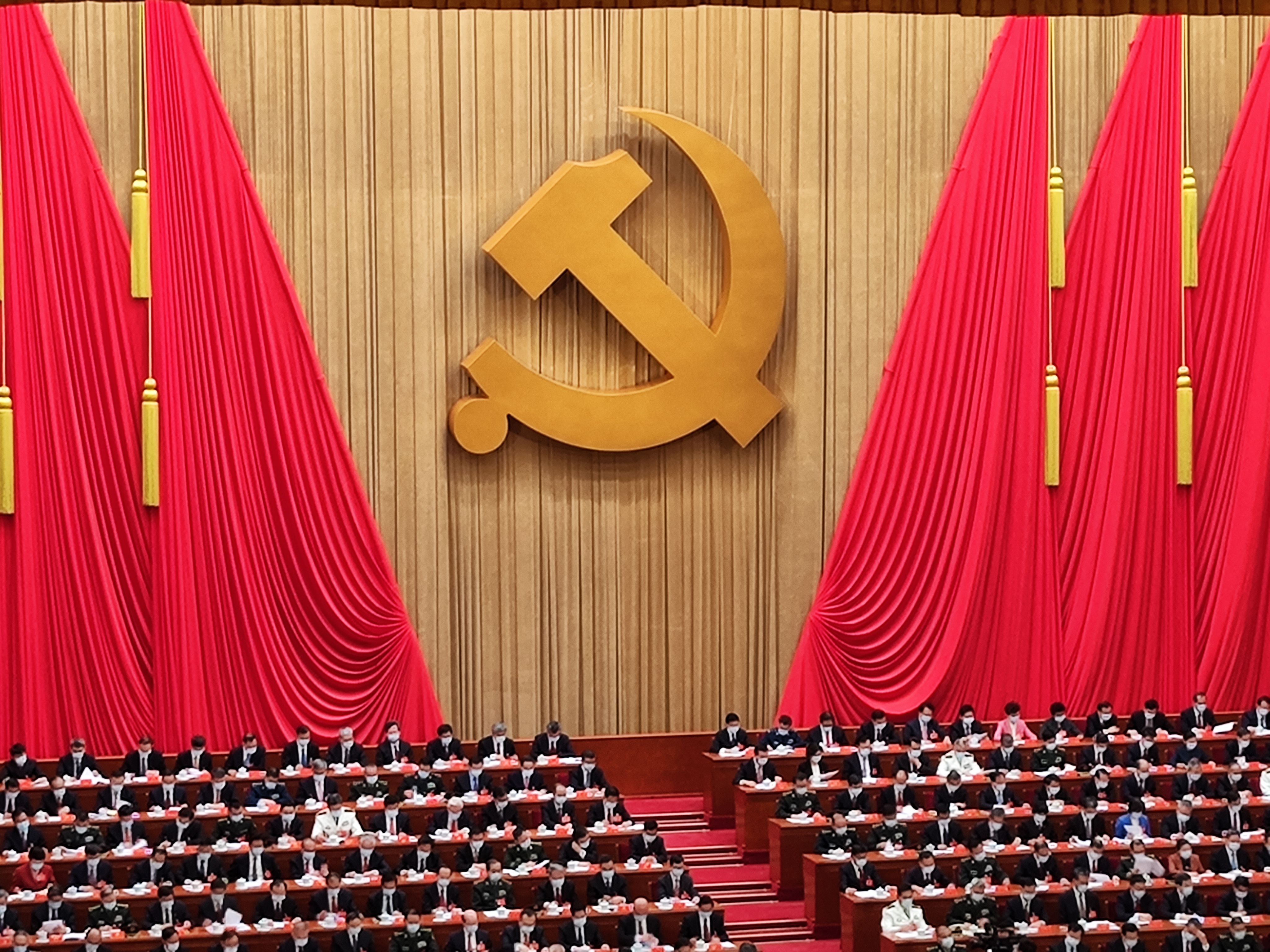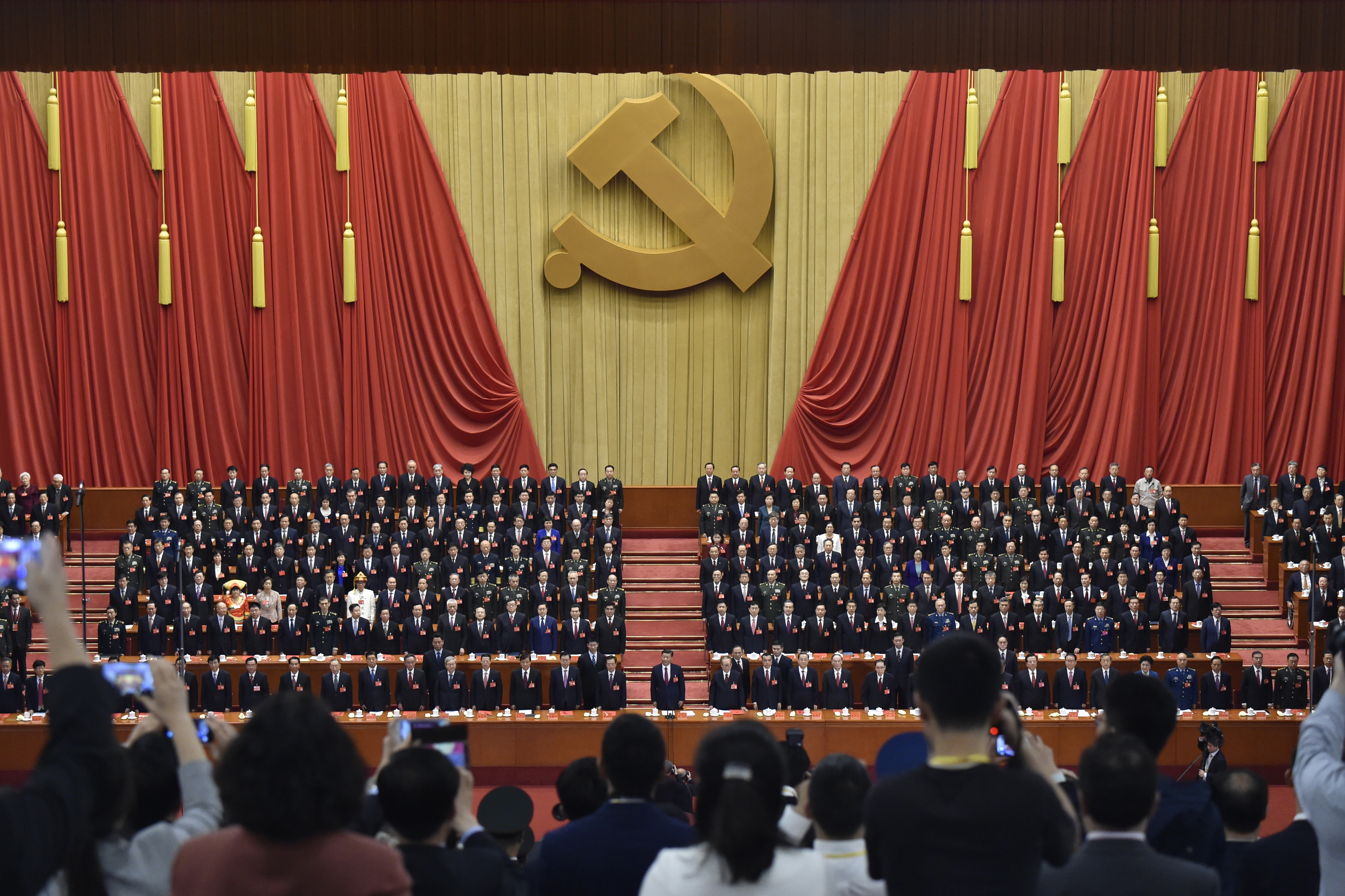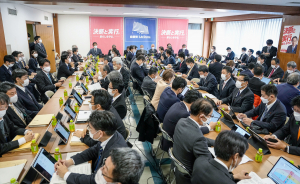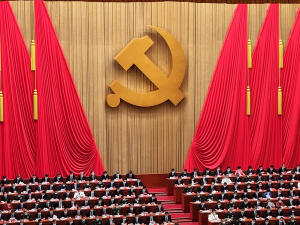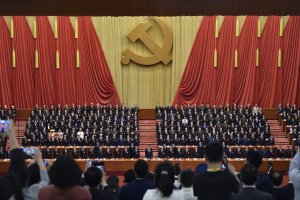
China’s Cross-Border Interbank Payment System: The First Step in the RMB’s Internationalization
May 23, 2022
R-2021-084E
China has seen how other economies have struggled due to their reliance on Western financial institutions and is advancing efforts to internationalize its own currency and encourage its use for cross-border payments, particularly in view of the growing contentiousness in its relations with the United States.
* * *
The Chinese economy is essentially export-driven. In 2021, China’s international trade—exports and imports combined—jumped by 30.1% from the previous year to reach US$6.5 trillion, and its trade surplus was $676.4 billion, according to figures released by the General Administration of Customs. It is fair to say that China’s export industries have outperformed expectations in the midst of the COVID pandemic.
To sustain this momentum, Beijing needs not only to maintain stable supply chains but also to stabilize the renminbi against other currencies. This is not something that can automatically be achieved with a trade surplus. Many in China are fully aware of Japan’s post-bubble fate and are keen to avoid falling into the same trap. Japan, too, had steadily built a burgeoning trade surplus with the United States, only to find itself stuck in a protracted recession in the face of rising trade friction with Washington and mounting international pressure for a stronger yen.
This was exacerbated by a currency crisis that crippled economies throughout Asia following the collapse of the Thai baht in 1997. Hedge funds began dumping Asian currencies, triggering a wave of devaluations across the region. Short of foreign currency reserves, desperate Asian economies turned to the International Monetary Fund for help, but in return the IMF demanded fiscal discipline and austerity, which made the crisis even worse.
One lesson that Asian countries learned from this was that overdependence on the United States can invite economic disaster, and they began viewing the so-called Washington Consensus with a more critical eye. Japan, for instance, stepped in to take the lead in coordinating a series of currency swap agreements, collectively known as the Chiang Mai Initiative, the idea being that multilateral currency swap agreements will allow Asian economies to manage short-term liquidity problems and avert future crises without outside help. The countries of the region have concluded that even if hedge funds were the immediate trigger for the crisis, the underlying problem lay in an excessive dependence on the United States.
In addition to currency swap agreements, Asian countries have concluded numerous free trade agreements with a view to building a regional common market. In a separate effort to reduce its dependence on the United States, the People’s Bank of China has been working to turn the renminbi into an international currency so as to better manage exchange rate risks and facilitate international payments in China’s own currency.
Most cross-border settlements today are carried out via the Society for Worldwide Interbank Financial Telecommunication (SWIFT)—a global provider of financial messaging services through which international payments between banks are executed—and China is no exception. But in recent years, the People’s Bank of China has been building its own Cross-Border Interbank Payment System (CIPS) for international settlements in renminbi. Work on CIPS began in 2012, and the system was launched in 2015. By the end of 2020, 1,092 financial institutions from around the world were members. Although the value of renminbi-denominated transactions handled by CIPS is increasing (from 2.65 billion yuan in 2018 to 4.53 billion yuan in 2020), this is still small beer in the context of China’s overall trade. For now, at least, CIPS remains at the experimental stage and should be considered a supplement to SWIFT, which is likely to remain the most important platform for international settlements.
As a point of comparison, the total value of the transactions processed by SWIFT is estimated to be as much as $5 trillion a day. SWIFT is a data-processing system that handles approximately 42 million messages every day. Clearly, a nascent system like CIPS can only serve as a complement to SWIFT and is unlikely ever to replace it.
Integral to China’s Economic Future
Even so, there is no doubt that China’s central bank is serious about turning the renminbi into an international currency. The biggest contribution to China’s international trade comes in the form of direct investment by multinationals and other foreign companies. More than 60% of the electronic devices and components exported by China are sold as the products of these foreign firms. For trade within Asia, there should certainly be an incentive for many businesses to make at least some settlements in renminbi, particularly when the dollar is volatile.
Of course, many challenges need to be overcome before CIPS can fulfill all functions now served by established systems like SWIFT. Its processing capacity must be upgraded, and the number of financial institutions using the system must be increased. There is also a need to enhance security provisions.
The idea of creating an alternative to SWIFT has gained currency in recent months for reasons other than China’s interest in internationalizing its currency. Many Russian banks were suspended from SWIFT and subject to strict sanctions following the invasion of Ukraine. This has fueled speculation about what might happen in case of a contingency across the Taiwan Strait. The prospect of being excluded from SWIFT is another reason for China’s desire to strengthen CIPS’s usability, although this might not be enough to sidestep any sanctions that are imposed on the country.
Recognizing the economic difficulties Russia has faced since being excluded from SWIFT, China now regards advancing CIPS as a matter of priority. Even without a contingency, China could be subject to various sanctions, given the increasingly confrontational tone of US-China relations. Beijing also has concerns that transactions processed via SWIFT might be subject to monitoring by US financial authorities. For sensitive transactions, therefore, processing payments via its own system has the advantage of reducing exposure to security risks.
The People’s Bank of China may have long-term ambitions about gaining ascendancy over the global financial system through CIPS. But the immediate objectives are to blunt the impact of Western sanctions and expand the volume of trade. Turning the renminbi into an international currency, though, will first require financial system reforms and the establishment of financial markets and systems in which the international community has confidence.
This will not be easy, and it will certainly not happen overnight. Nevertheless, we should take note of the fact that the efforts to develop CIPS will remain integral to ensuring China’s economic future.



